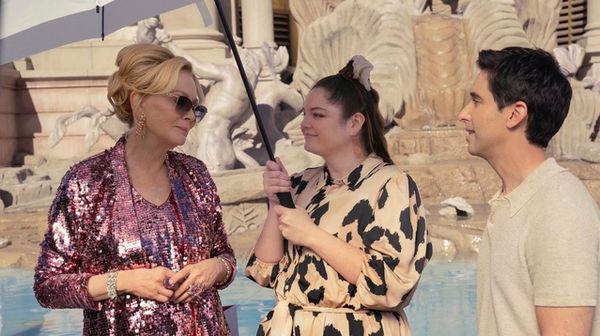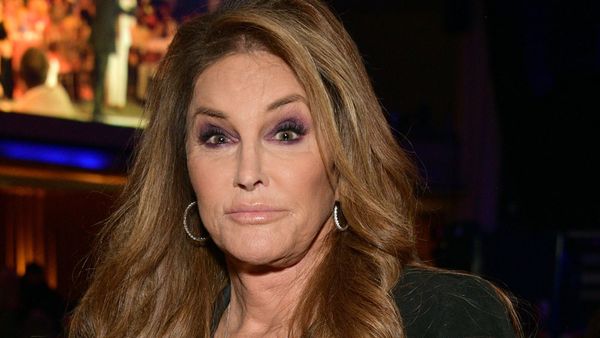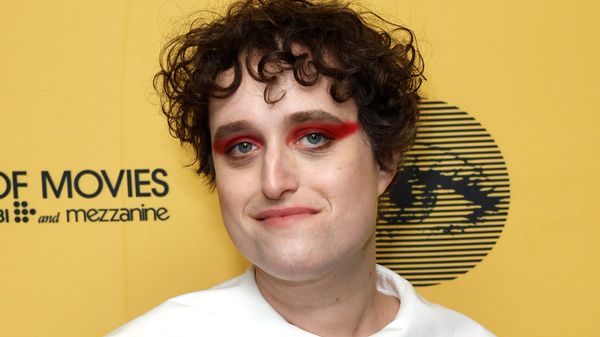Feb 22
Hometown Premiere: With 'Eurydice,' Matthew Aucoin Brings Acclaimed Opera to the Boston Lyric Opera
Kilian Melloy READ TIME: 9 MIN.
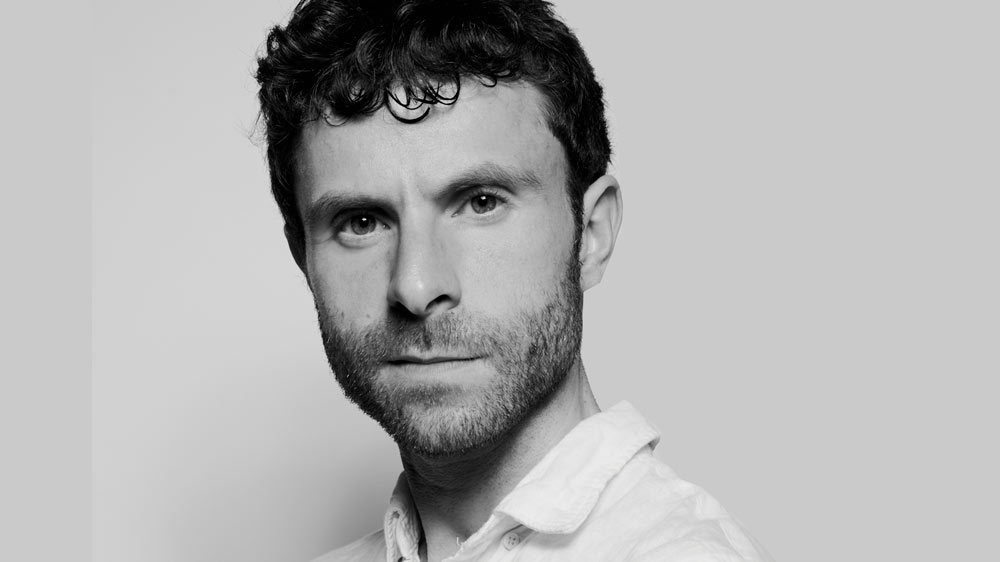
Boston native Matthew Aucoin is a young man on the move; in the case of his revised version of the opera "Eurydice," which he composed to a libretto by playwright Sarah Ruhl, based on Ruhl's stage play, Aucoin's move is back to Beantown, where he will conduct the Boston Lyric Opera's production of his opera at the Huntington Theatre, March 1 – 10. (For performance dates, tickets, and more information, visit the Boston Lyric Opera's website.
The son of Boston Globe theater critic Don Aucoin (who, full disclosure, this correspondent served with in the Boston Theater Critics Association), Matthew played in a rock band in his youth. But opera was the musical art he chose to pursue, and at the age of 33 he has already forged a dazzling career that includes an opera about American poet Walt Whitman ("Crossing," commissioned by the Cambridge-based American Repertory Theater), a number of chamber works and orchestral compositions, a book about opera ("The Impossible Art," 2021), and, in 2018, receipt of a MacArthur Fellowship, more commonly known as the MacArthur genius grant.
With "Eurydice," Aucoin is also one of the few contemporary American composers to have his opera premiere at the Metropolitan Opera (in a co-production with the Los Angeles Opera). It was commissioned by the two companies when Aucoin was an artist in residence at the LA company. The opera premiered at the Met in November 2021 where it played for seven performances over the season.
Aucoin and Ruhl's operatic collaboration is just the latest in a long line of operatic treatments of the myth of Orpheus; in fact, the earliest surviving opera, written in 1600 by Jacopo Peri and Giulio Caccini, took on the story of the preternaturally gifted singer – a demigod whose father is the Greek deity Apollo – who ventures to the Underworld to retrieve Eurydice, the love of his life, after she is bitten by a snake and dies. Playing music that's so sad it wrings tears from the very stones, Orpheus convinces the king of the Underworld, Hades, to allow him to retrieve Eurydice and restore her to the land of the living. Hades agrees, but there's a catch: Orpheus can lead Eurydice back to the world above, but he must not look back at her until they arrive. If he does, she will be returned to the land of the dead and lost to him forever. Alas, like Lot's wife in another story about the risks of looking back at something you had before instead of focusing on the road ahead, Orpheus cannot resist glancing over his shoulder. Their tragic tale is a heartbreaker that has endured for millennia.
The big difference with previous versions is that Ruhl's text adopts Eurydice's point of view; and suggests there's more to the story, if only we're willing to hear it from a woman's perspective. (It's not necessarily kind to the male ego.) Aucoin, in setting Ruhl's text to music, conceived his own daring notion of why, at the story's crucial moment, the half-god hero looks back despite knowing what it will cost him.
In conversation with EDGE, Matthew Aucoin explained his take on Orpheus (including why he doubled the part, writing portions of Orpheus' material for two voices), reflected on the appeal of opera to the queer community, and revealed what he has in store for Boston audiences.
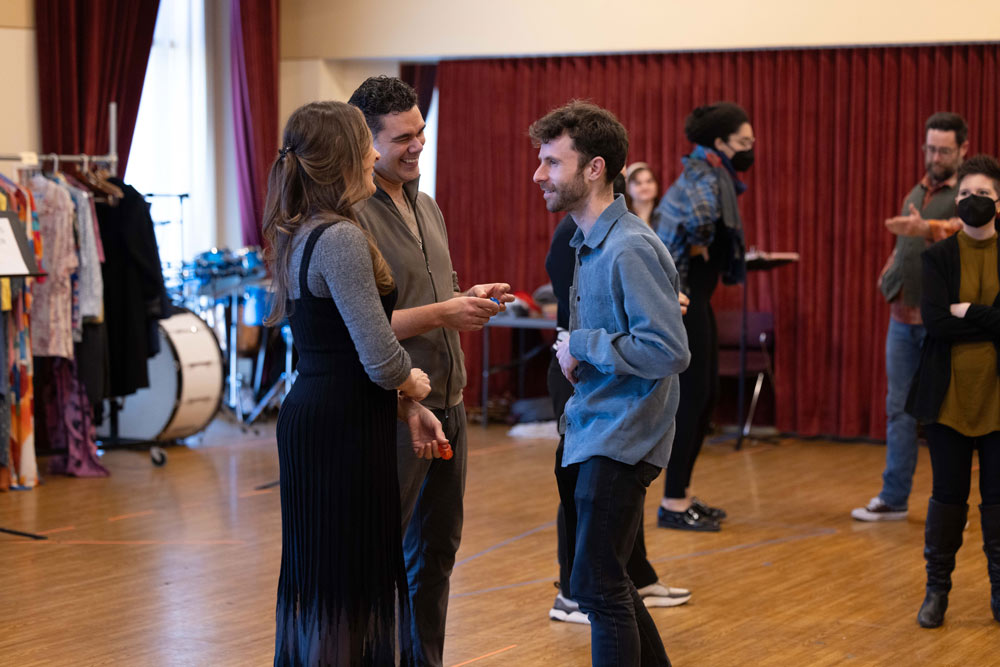
Source: Kathy Wittman/Ball Square Films
EDGE: I read that you regard opera as a summation of sensory experiences. I wonder if the grandeur and larger-than-life character of opera is part of why many gay men seem to find opera appealing.
Matthew Aucoin: There's such a rich history of opera and queerness. I would point anyone who hasn't read it to Wayne Koestenbaum's book "The Queen's Throat," which is a kind of personal history of gay men and opera. I think it has a lot to do with masks, as well; with this sense that, in music, you can say things that are other than the surface meaning. There's a way that I think, for centuries, opera was an art form of queer liberation, because it queers the whole nature of how human beings speak to sing in this way. Gender identities get totally scrambled... the whole history of the form is full of women impersonating men, [and of] countertenors – men singing in what is typically considered a female register.
[Opera] is another planet, and different rules apply to how human beings interact. I think it's really touching that many queer people, including a ton of gay men, found liberation in this kind of planet when the planet we actually live on was not especially conducive to queer life.
EDGE: It seems like the myth of Orpheus and Eurydice could also appeal to our community because it's about lost love, or love that is challenged.
Matthew Aucoin: A part of the story that we did not set in the opera, and that a lot of people don't know of, is that after the whole tragedy transpires, Orpheus consoles himself by having a bunch of affairs with shepherd boys. But that would be a whole other opera.
EDGE: Wow! Gotta love the classical Greeks.
[Laughter]
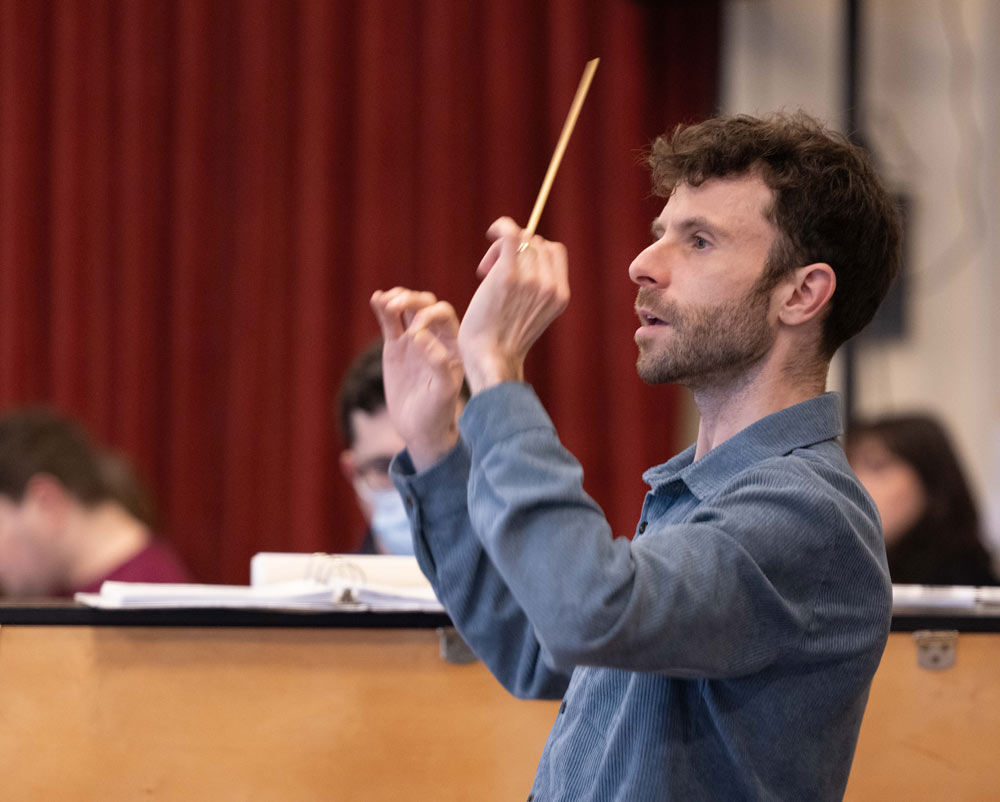
Source: Kathy Wittman/Ball Square Films
EDGE:: Before the Met production of "Eurydice" in 2021, you conducted the opera at the Los Angeles Opera in early 2020. Did you find that the reception to the Los Angeles production felt different to the reception at the Met 18 months later, when we'd been going through the pandemic?
Matthew Aucoin: It sure was different. In a way, the two productions were bookends. The LA production closed only a week or two before the world closed.
I got a lot of emails from people who saw the Met production, and had unexpected, intense forms of identification with the piece. I think a lot of people were feeling pretty raw, maybe having lost someone close to them or having endured a really difficult moment... and then, also, people who had had experiences with caring for people with dementia, caring for people who've lost their identity in some way. [I think] that the piece felt kind of close to the bone.
EDGE: You commented in an interview that your interpretation about Orpheus looking back was he had a perverse impulse in the back of his mind, thinking that such a loss would give him material for his songs; he is willing to sacrifice his happiness for his art. Maybe there's a flip side to that, in that Sarah Ruhl's text suggests maybe Eurydice isn't that keen to return to her life with Orpheus – she's just not that into him, as they say.
Matthew Aucoin: I think there are two love triangles in this opera. There's a kind of triangle between Eurydice, Orpheus, and Eurydice's father – not that she's in love with her father, but that she feels a pull towards him, which is also towards the realm of death. And then there's also a kind of love triangle between Orpheus, Eurydice, and music itself.
I decided to depict Orpheus as two singers, because I do think he has a split nature. He has this side to him that is that is somewhat superhuman, and I wanted to embody this supernatural side. Speaking of queerness, I wanted this spirit presence to have an androgynous quality, and also a homoerotic quality – a sense that Orpheus is a little bit narcissistic, he's kind of in love with this projection of himself as much as he is in love with his girlfriend.
I think Eurydice is an artist in Sarah's play. She's a thinker, she's a writer, and she seems every bit as neurotic as most artists are; she's full of self-doubt. She's constantly qualifying everything. There's this kind of, "I love you... I think" quality to her. She's not the first protagonist of a play to be undone by being indecisive.
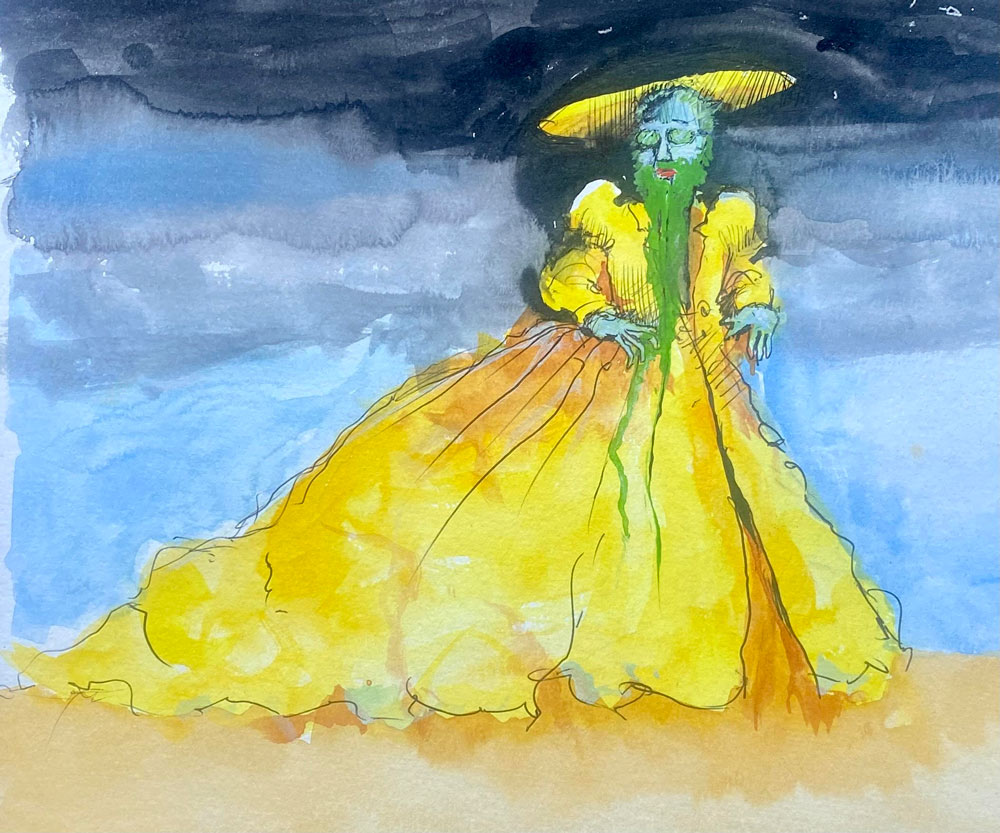
Source: BLO
EDGE: You're so accomplished at the age of 33, with a book, and operas, and being a conductor of orchestras.
Matthew Aucoin: A lot of things did happen more quickly than I expected, in the sense of having a lot of opportunities. But I have tried, and I think I'm succeeding, in really staying focused on just writing good music – which is not to say that I've written good music yet, but I think eventually I may write some good music. But what I need [in order] to do that is to ignore the external stuff and spend most of my days just sitting at home with a blank page.
This is a roundabout way of saying I'm trying, actually, to slow down, not speed things up, because I'm learning with every year that passes that these things take so long to incubate. [For] a piece the size of an opera, you just need so much silence. You need to spend so much time in silence to find something that feels true. So, the short way of saying this would be, hopefully, you ain't seen nothing yet! I'd better get started!
[Laughter]
EDGE: You've rearranged the music for the production coming up in Boston. How extensive are those changes going to be?
Matthew Aucoin: The original version of "Eurydice" is very large-scale. It has a very large orchestra and an off-stage chorus, which makes the piece difficult to produce by any except the very largest companies internationally. But the story, I think, is a pretty intimate one, so I always wanted to make a chamber-scale version of the piece that would be much easier for small and medium-sized companies to produce – as well as conservatories; I could imagine this version being produced by music schools. So, the piece is thoroughly re-orchestrated. The new version has an orchestra of 17 players, as opposed to more like 70 or 75 in the original. And there is no chorus. There are these three characters, the Stones, who are these obnoxious, bureaucratic Guardians of the Underworld, and in some of the moments where the chorus sings off stage in the original version, I've reassigned that music to the Stones so that they serve as a little chorus in the Greek sense. So, the piece is substantively the same, but the textures are all quite different because it's a much, much smaller ensemble.
The Boston Lyric Opera's production of "Eurydice," conducted by Matthew Aucoin, will run March 1 – 10 at the Huntington Theatre. For tickets and more information, follow this link.
Kilian Melloy serves as EDGE Media Network's Associate Arts Editor and Staff Contributor. His professional memberships include the National Lesbian & Gay Journalists Association, the Boston Online Film Critics Association, The Gay and Lesbian Entertainment Critics Association, and the Boston Theater Critics Association's Elliot Norton Awards Committee.

